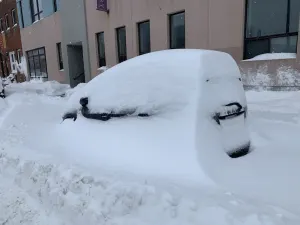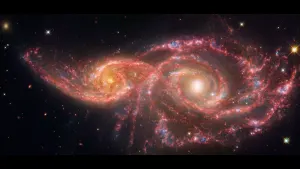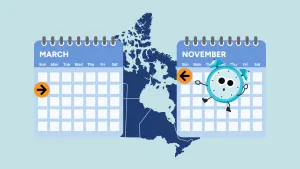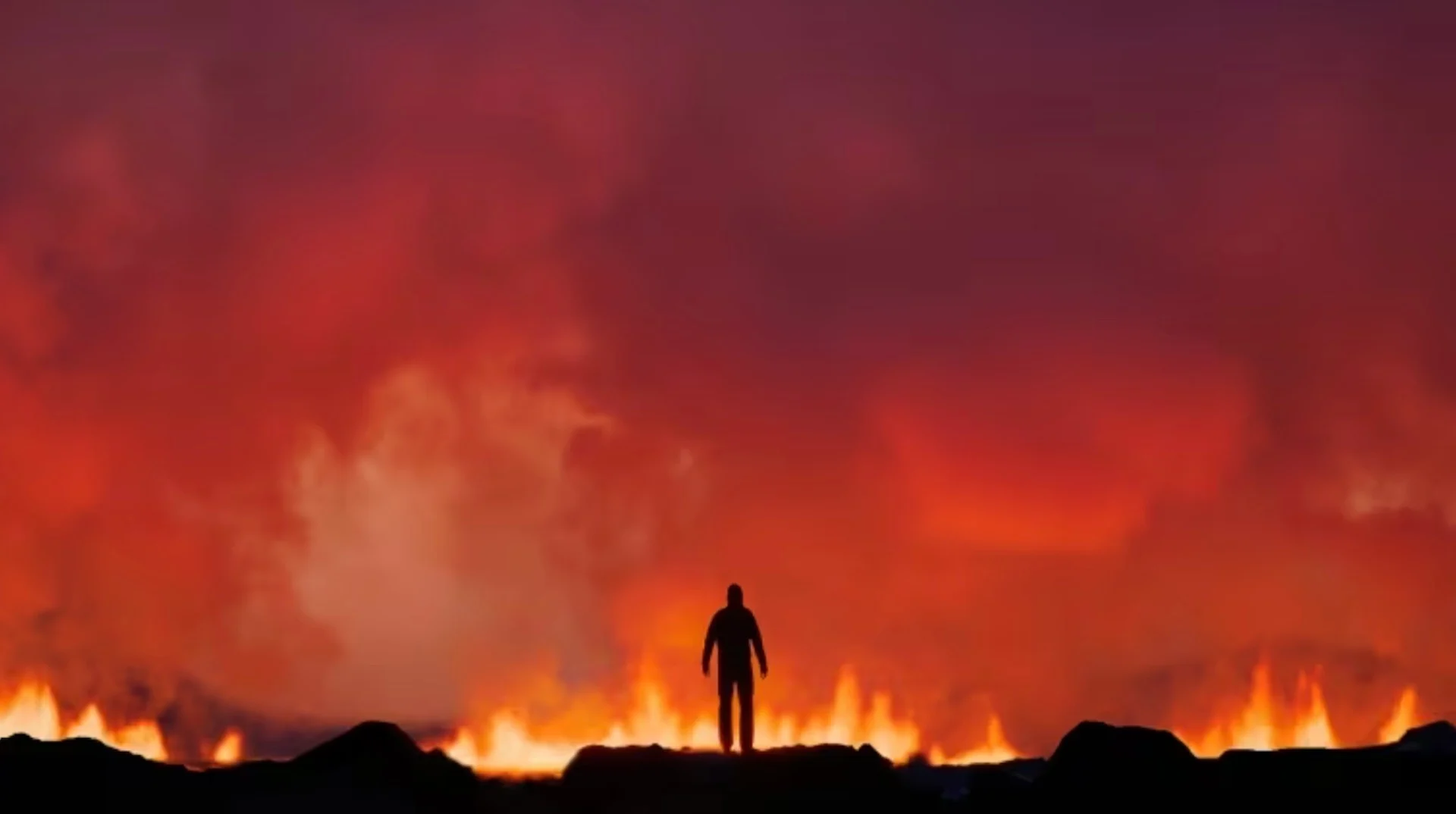
Iceland's erupting volcano an 'unforgettable' close encounter, says photographer
When a resident of Banff, Alta., was planning a group photography trip to Iceland, he thought it would be a good idea to end the excursion with a dip in the country's famous Blue Lagoon spa.
But instead of a rejuvenating soak, the group was met by an early morning evacuation order. Over the hill from the hotel they were staying in, a volcano had just erupted.
Photographer Paul Zizka spoke to CBC News on Sunday from the Keflavik airport in Iceland, where he was about to board a plane home.
SEE ALSO: Iceland volcano erupts with lava fountains, disrupts heating and roads
Zizka was co-leading a group of mostly Canadian photographers on a trip to the country when a volcanic erupted last week along a three-kilometre fissure northeast of Mount Sýlingarfell, according to the Icelandic Meteorological Office.
It was the third time the volcano in southwestern Iceland has erupted since December, sending jets of lava into the sky and triggering an evacuation of the Blue Lagoon spa — one of the country's most popular tourist attractions.
"It was a very eventful way to end our programming, I can tell you that," said Zizka.
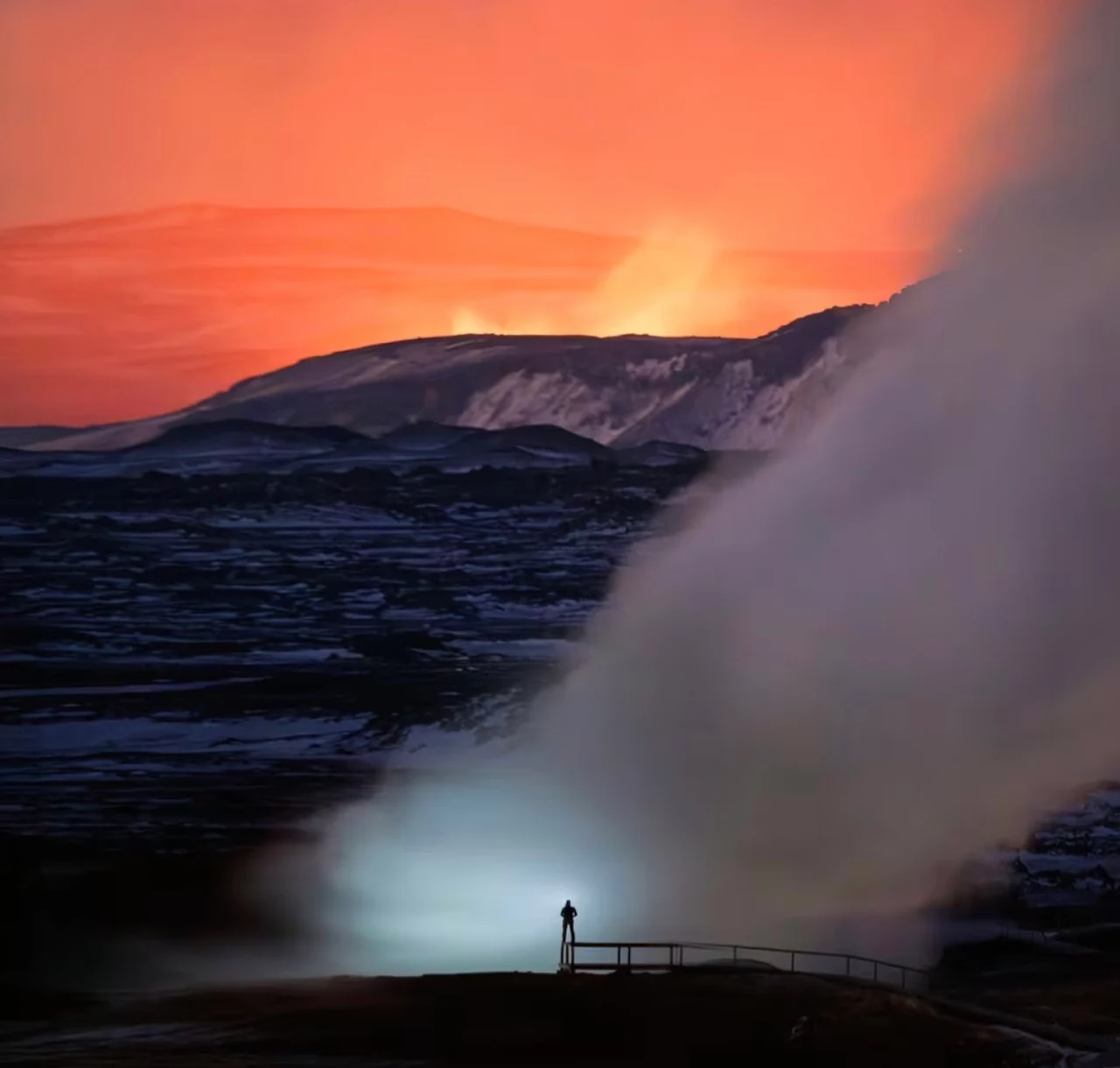
Another fiery night in Iceland, wrote Zizka on Instagram for this posted photo. He said the Sundhnúksgígar eruption was subsiding but its glow remained mesmerizing as darkness fell. (Submitted by Paul Zizka)
Zizka said while some members of the group were shaken awake by tremors at 5:30 in the morning, the rest of them were met by a knock on their hotel room doors from hotel employees shortly after, saying that there had been an eruption and they needed to evacuate.
"Within about 20 minutes we were all [outside] with our luggage in the parking lot under this massive column of orange billowing from behind the mountain," said Zizka.
He said the group made up of 14 people in total, alongside roughly 15 other guests who were staying at the hotel, then piled into vehicles and caravanned to a nearby town for safety. The hotel, called the Northern Light Inn, was about two kilometres away from the eruption when it happened, said Zizka.
"About five minutes after setting out on the road [the eruption] finally came within sight. We saw those massive columns of lava shooting up and down, I think 50 to 80 metres in the air. Everything was glowing orange … the snow would reflect the colour all over the place. It was unforgettable, to say the least."
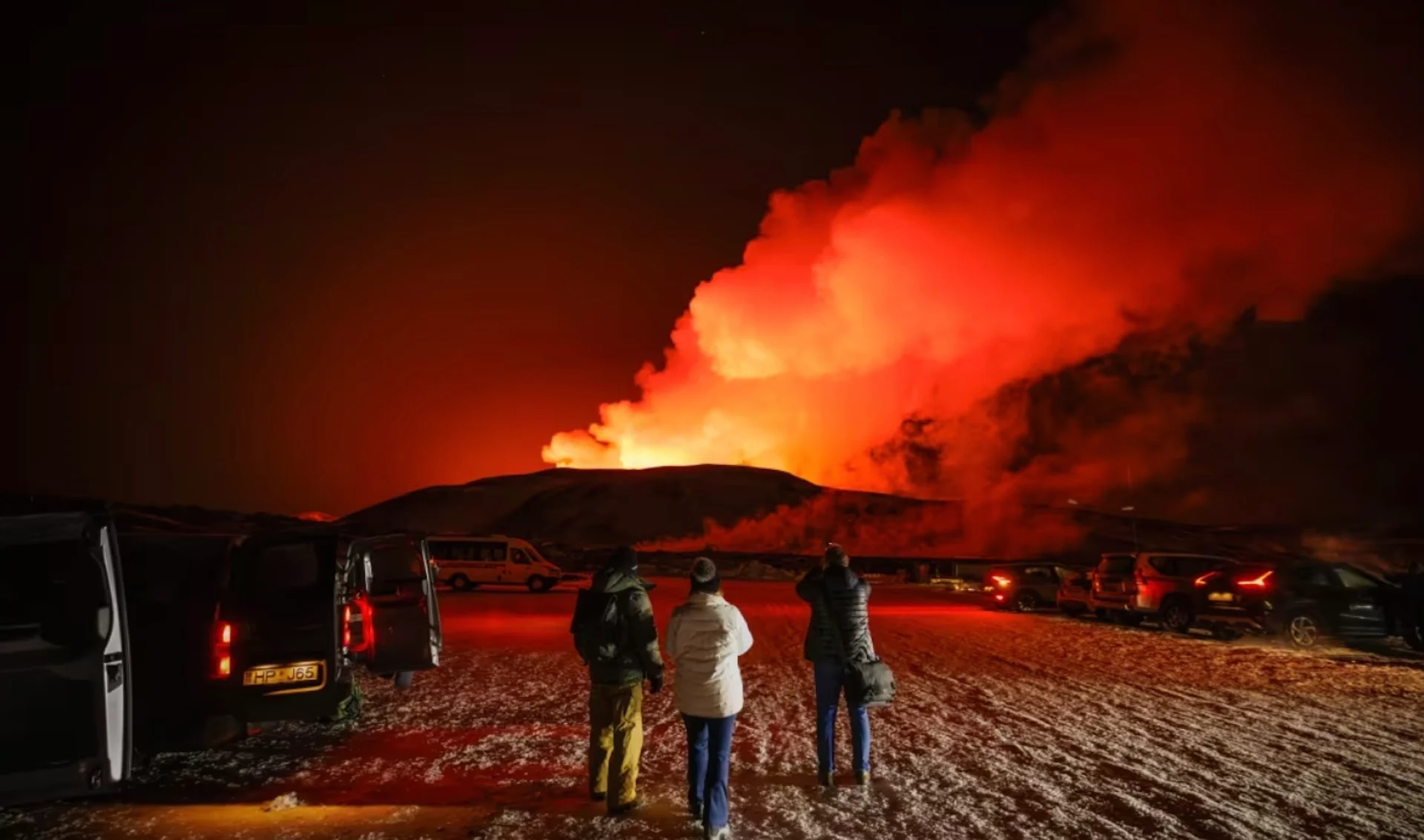
A view of the eruption from the parking lot of the hotel where the group was evacuated from. (Submitted by Paul Zizka)
The eruption left several communities on the Reykjanes Peninsula cut off from heat and hot water after a river of lava engulfed a supply pipeline.
Zizka said his group got out of the area just in time, before lava crossed the road blocking the escape route.
The strength of the eruption had decreased by mid-afternoon, the Meteorological Office said, although lava continued to spew from parts of the fissure and a huge plume of steam rose over a section of the crack where magma mixed with groundwater.
Overall, Zizka said the evacuation went smoothly.
"You can tell that it's something that Icelanders are used to living with," he said. "Probably the hardest part is to get a bunch of photographers to hustle when lava was going off in the background and everybody's kind of drawn to the cameras. But safety first, we got people to safety."
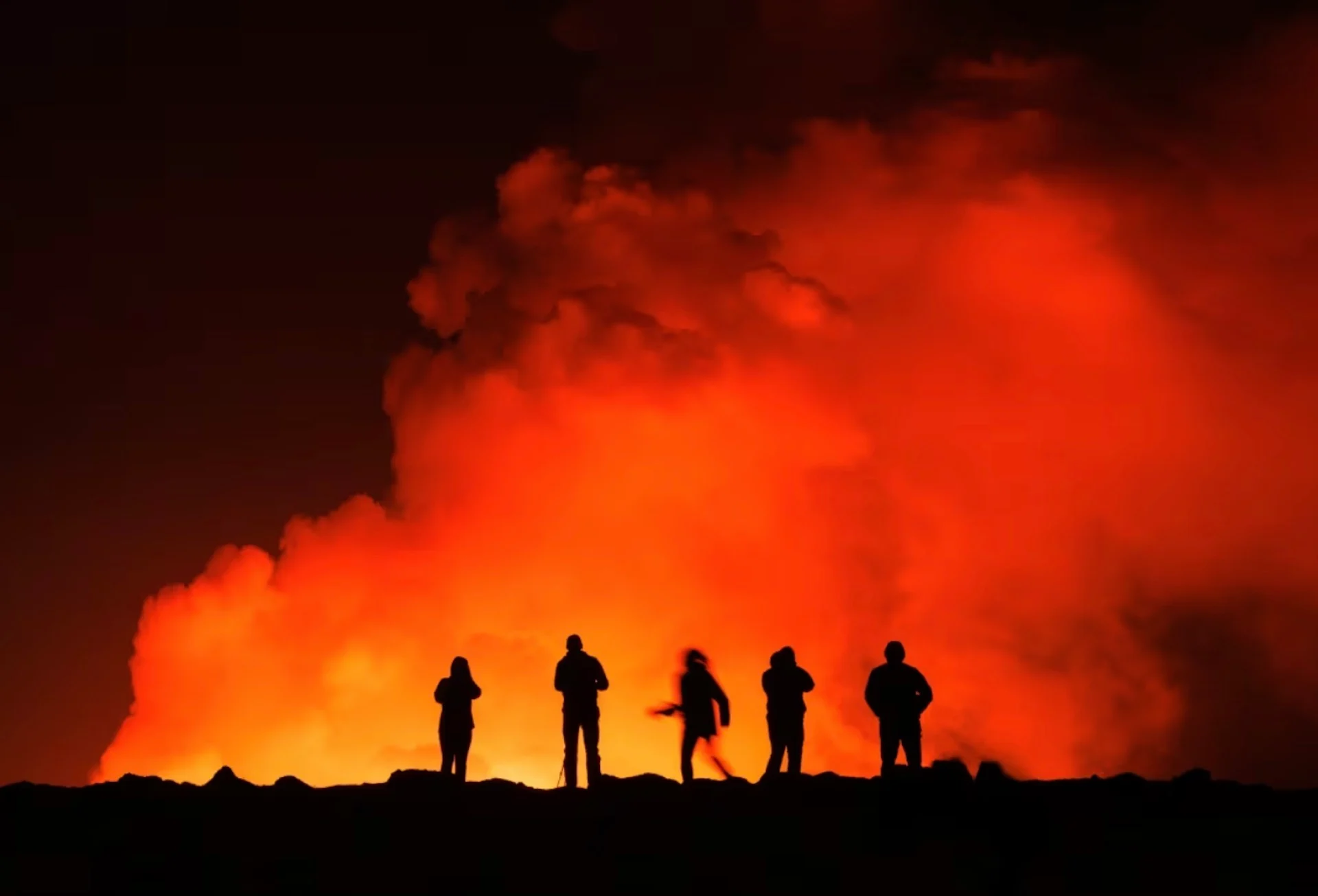
Paul Zizka says he won't soon forget the images he took, as lava fountains in the background shot upward of 80 metres into the air as his group evacuated. (Submitted by Paul Zizka)
Once reaching a safe place, the group was able to stop and photograph the eruption from a more comfortable distance away, which Zizka said was the highlight of the trip.
Dave McGarvie, a volcanologist who has worked extensively in Iceland, said that after centuries of quiet, "people thought this area was fairly safe."
"It's been a bit of a shock that it has come back to life," he added. "Evidence that we gathered only quite recently is that eruptions could go on for decades, if not centuries, sporadically in this particular peninsula."
WATCH: Will Canada use volcanoes to generate energy?
Thumbnail courtesy of Paul Zizka via CBC.
The story was originally written and published for CBC News. It contains files from from Helen Pike and The Associated Press.






